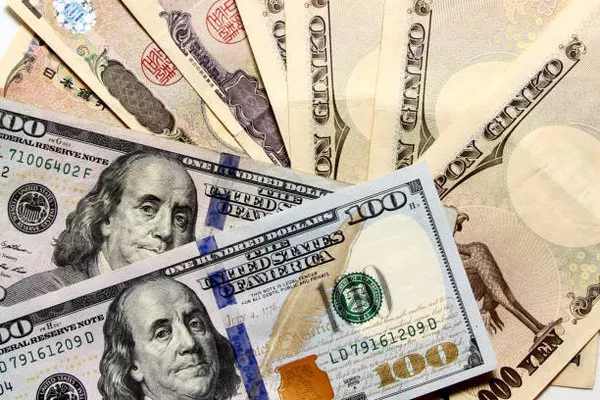The Japanese yen holds a significant position in the global financial landscape, serving as a key currency in international trade, investment, and foreign exchange markets. This article aims to explore the importance of the Japanese yen, examining its role as a reserve currency, its impact on global financial stability, and the factors influencing its value.
1. The Japanese Yen as a Reserve Currency
Reserve Currency Status
Historical Evolution: The Japanese yen attained reserve currency status following Japan’s post-World War II economic resurgence and its emergence as a major global economic power. Japan’s rapid industrialization and export-led growth propelled the yen onto the international stage, leading to its adoption as a reserve currency by central banks and sovereign wealth funds worldwide.
Global Reserve Holdings: Central banks and monetary authorities hold significant reserves of Japanese yen as part of their foreign exchange reserves, alongside other major reserve currencies such as the US dollar, euro, and British pound. The yen’s reserve currency status reflects Japan’s position as a major creditor nation and its role as a key player in global trade and finance.
Implications of Reserve Currency Status
Currency Stability: The yen’s reserve currency status contributes to its stability and liquidity in global financial markets, as central banks and investors hold yen-denominated assets as a store of value and a hedge against currency risk. The yen’s status as a reserve currency enhances its attractiveness to investors and strengthens its role in international finance.
Global Trade and Investment: Reserve currency status facilitates international trade and investment flows denominated in Japanese yen, providing a common unit of account for transactions and promoting financial integration among economies. The widespread use of the yen in global trade settlements and cross-border investments underscores its importance in the global economy.
2. The Impact of the Yen on Global Financial Stability
Currency Market Dynamics
Yen Exchange Rate Movements: Fluctuations in the value of the Japanese yen can have significant implications for global financial stability, as the yen is one of the most actively traded currencies in the foreign exchange market. Changes in yen exchange rates impact the competitiveness of Japanese exports, the profitability of multinational corporations, and the stability of currency markets.
Yen Carry Trade: The yen’s low interest rate environment has historically fueled carry trade activities, where investors borrow yen at low rates and invest in higher-yielding assets denominated in other currencies. Yen carry trades can amplify currency market volatility and pose risks to financial stability, particularly during periods of market stress.
Financial Market Linkages
Correlation with Global Markets: The Japanese yen exhibits correlations with other major currencies, equity markets, and commodity prices, reflecting its interconnectedness with global financial markets. Changes in yen exchange rates can transmit shocks across financial markets, affecting investor sentiment, risk appetite, and portfolio allocations.
Safe Haven Status: During times of economic uncertainty or geopolitical tensions, the Japanese yen often serves as a safe haven currency, attracting capital inflows and strengthening against other currencies. The yen’s safe haven status contributes to its role as a stabilizing force in global financial markets, providing a hedge against market volatility and systemic risks.
3. Factors Influencing Yen Exchange Rates
Monetary Policy
Bank of Japan Policies: The Bank of Japan’s monetary policy decisions, including interest rate settings, asset purchase programs, and forward guidance, play a crucial role in shaping yen exchange rates. Changes in BOJ policies can impact investor expectations, inflation dynamics, and currency market sentiment, influencing the value of the yen relative to other currencies.
Economic Fundamentals
Growth and Inflation Outlook: Japan’s economic performance, growth prospects, and inflation expectations influence yen exchange rates by affecting investor confidence and risk perceptions. Positive economic data, such as GDP growth, industrial production, and consumer spending, can strengthen the yen, while weak economic indicators may lead to yen depreciation.
Trade Balances: Japan’s trade balances, characterized by its trade surplus or deficit, impact yen exchange rates by reflecting the country’s external trade competitiveness and its reliance on exports. Changes in trade dynamics, such as shifts in export volumes, import prices, and trade policies, can affect the supply and demand for the yen in global markets.
The Future of the Japanese Yen: Considerations and Outlook
Policy Challenges
BOJ Policy Dilemmas: The Bank of Japan faces challenges in balancing its dual mandate of achieving price stability and supporting economic growth amid structural headwinds such as demographic aging, low productivity growth, and fiscal constraints. BOJ policy decisions will continue to influence yen exchange rates and shape the currency’s role in the global economy.
Global Economic Dynamics
US Dollar Dynamics: The trajectory of the US dollar, influenced by factors such as Federal Reserve policies, US economic data releases, and geopolitical developments, will impact yen exchange rates and global financial stability. Changes in US dollar strength can lead to yen appreciation or depreciation, affecting cross-border trade and investment flows.
See Also: 4 Best Investment Strategies for Yen Exposure
FAQs:
Why is the Japanese yen considered a reserve currency?
The Japanese yen is considered a reserve currency due to Japan’s status as a major global economic power, its role in international trade and finance, and the widespread use of the yen in global trade settlements and cross-border investments.
How does the yen’s reserve currency status impact global financial stability?
The yen’s reserve currency status contributes to currency stability, facilitates international trade and investment flows, and strengthens the yen’s role as a stabilizing force in global financial markets.
What factors influence yen exchange rates?
Yen exchange rates are influenced by factors such as monetary policy decisions, economic fundamentals, trade balances, market sentiment, and global economic dynamics.
What role does the Bank of Japan play in shaping yen exchange rates?
The Bank of Japan plays a crucial role in shaping yen exchange rates through its monetary policy decisions, including interest rate settings, asset purchase programs, and forward guidance.
How does yen depreciation affect global financial markets?
Yen depreciation can impact global financial markets by affecting currency market dynamics, financial market linkages, investor sentiment, and the stability of currency markets.


